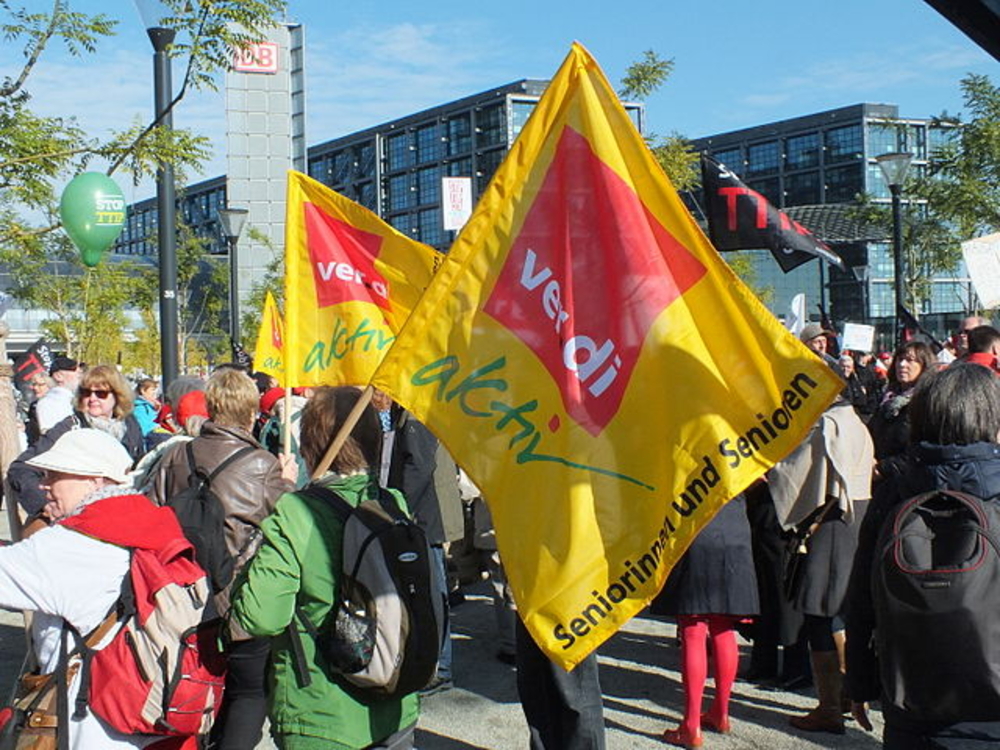Jakob Schaefer
Posted April 28, 2023

In Germany, price rises are particularly high, the rate has been exceeding 8 per cent for months. According to the economic research institute WSI, which is close to the trade unions, real wages have already fallen sharply over the past three years and the increase in the cost of living (especially for food and energy), which has thus accelerated significantly, particularly affects the lowest paid employees (nurses, bus drivers, etc.).
Against this background, it is not surprising that the demands for higher wages have increased significantly in recent months, albeit against the wishes of the trade union leadership. For example, the public services union Ver.di is demanding a 10.5 per cent increase, with at least 500 euros, for employees in the federal and municipal services; it has demanded 15 per cent for postal workers and the EVG (the larger of the two railway unions) is asking for 12 per cent, with at least 650 euros. The duration of each agreement would be 12 months.
Little long-term protection for wages
Left-wing trade unionists have always criticized the fact that real wage losses are hidden over the long term. This happened in the autumn in the chemical industry and later in the metal and electronics industries. Recently, the Ver.di trade union concluded a collective agreement for the employees of the Post Office which, because of the two-year duration of the agreement, will lead to a loss of real wages (depending on the monthly salary) of between 5 and 7.5 per cent (which will be even higher if the inflation rate exceeds 8per cent).
The deception is further facilitated by the “sweet poison of one-off payments”. The government decided in the autumn that an inflation compensation bonus of up to 3000 euros would be exempt from social security contributions and taxes. The unions are thus buying themselves an agreement that they present in a favourable light to their members, but for which the one-off payment is not taken into account in the wage scale and therefore does not contribute in the long term to the protection of real wages.
The agreement at the Post Office is particularly unfortunate for two reasons: on the one hand, employees had carried out warning strikes (strikes of a few hours and demonstrations) with a high turnout and then voted 86 per cent for a full strike in a vote of Ver.di members at the Post Office. The members were motivated and ready to fight. Secondly, this group has made an operating profit of over 8 billion euros in each of the last two years.
Strong bureaucratization
The fact that the union bureaucracy is holding back the struggle in this way is not only due to a politically explained fear of conflict (the bureaucracy is ideologically very much integrated into the system). There are also material reasons for this. On the one hand, it is the material privilege enjoyed in Germany by the top ranks of the trade union apparatus, which are financed by the members’ fees. On the other hand, high-level bureaucrats – especially in the public service unions – are at the same time materially corrupted in the state services (e.g. in the supervisory boards of public companies).
The vote of Ver.di members at La Poste on the outcome of the negotiations is still ongoing, but it will be more or less impossible to get the 75 per cent negative vote needed to reject the agreement.
What is devastating is that the outcome of the negotiations at La Poste will have a disastrous political impact on collective bargaining in the public sector (which is “not making a profit”). The decisive negotiations there will take place at the end of March and the trade union left fears a similarly bad result.
Left-wing trade unionists are calling for the rejection of the agreement at La Poste and hope that trade unionists in the public services and railways will realize that this cannot continue. We need a different wage policy, we need a different union leadership, basically we need completely different unions.
This is also why we look to France, because we see things there: whoever fights can lose, whoever does not fight has already lost.
22 March 2023
Translated by International Viewpoint from l’Anticapitaliste.
